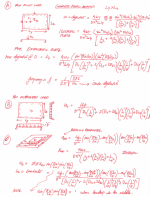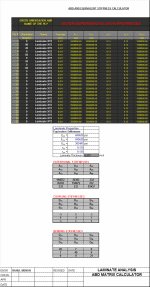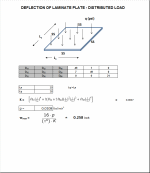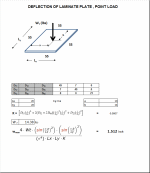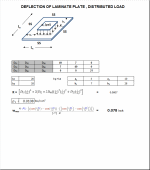Plate Bending for Orthotropic Laminates
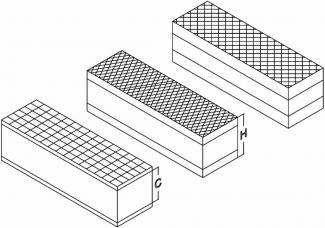
Description
Laminated plate theory (LPT) or classical lamination theory (CLT) is the basic design tool for evaluating different laminates when experimental data are not available. LPT can be used to combine properties and the orientation of each ply in a predetermined stacking sequence to predict the overall performance characteristics for a laminate. LPT is based on the assumptions that the laminate deforms under conditions of plane stress and that the strains experienced by the individual layers of the laminate are compatible with the strains in the neighbouring layers. The mechanical properties (i.e. the moduli and poisons ratios)of the unidirectional composite are required before LPT can be applied and these are best obtained from mechanical tests. In-plane loading and loading from bending can be considered. LPT can also be used to assess the stresses that arise through temperature and moisture changes. This theory provides the in-plane stresses and strains for each lamina of the laminate and can be combined with failure criteria for individual plies.
Calculation Reference
Laminate plate theory
Composite Design
Design of laminate materials
Calculation Preview
Full download access to any calculation is available to users with a paid or awarded subscription (XLC Pro).
Subscriptions are free to contributors to the site, alternatively they can be purchased.
Click here for information on subscriptions.

